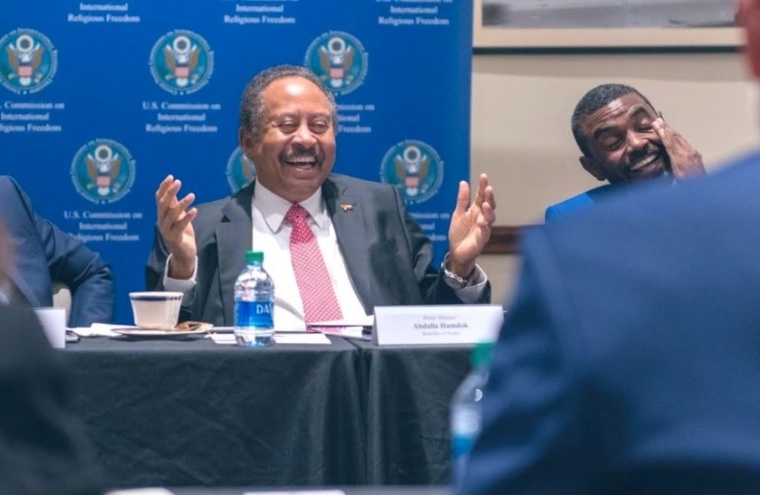It is clear that the Transitional Government in Sudan wants to be removed from the State Sponsor of Terrorism list that is compiled by the State Department. Thanks to a recent move by that government, it appears as if they have found another box to check off on their way to innocence.
Early last month, March 2020, the Ministry of Religious Affairs in Sudan announced that it was abolishing the committees imposed upon churches by former President Omar al-Bashir. These “church councils” were used by the government to legitimize their takeover of church properties. This was a particularly virulent time, after the secession of South Sudan when Bashir’s government declared Sudan to be a completely Islamic Sharia state. Now there is growing hope that complete oversight of the churches will no longer rest in the hands of government, but in the church bodies themselves.
This move came during an unusual period of engagement with the United States. Late in February a delegation from the United States Commission on International Religious Freedom (USCIRF) was in Sudan for a visit. A press release by USCIRF commended the transitional government for making steps towards religious freedom such as this disbanding of the church committees. This visit was the continuation of engagement from late last year. In December, Prime Minister Abdalla Hamdok and other members of the transitional government met with USCIRF in Washington, DC.
Before the outbreak of the coronavirus, another visit to Sudan had been planned for mid-April. This one was to have been by Ambassador-at-Large for Religious Freedom Sam Brownback. Since that visit has now been postponed, activists are making the most of the delay to gather as much information as they can about the current treatment of both Christians and other religious minorities and of all of Sudan’s marginalized people groups. This will ensure that Ambassador Brownback is well informed with facts and not swayed by any residual famous “charm offensive” of Khartoum from those who were aligned with the previous regime.
Charm offensive possibilities aside, the move to abolish the church committees benefits greatly three Christian denominations in particular. The treatment of the Sudanese Church of Christ (SCOC) and Sudanese Presbyterian Evangelical Church (SPEC) by the Bashir government is now under scrutiny.
The National Congress Party regime of Omar al Bashir imposed its own leader on the SCOC. And the government took over properties of the SPEC, after establishing a committee to run its affairs. Another denomination particularly hard hit by the “church committees” was the Pentecostal Church.
Currently there is no timetable to return the church properties back to their previous owners but reportedly these properties will be returned after court action. Even without a timeline for completion of the move towards religious freedom, the initial action has been welcomed by many in Washington, DC.
After the ouster of President Bashir in a coup and some of the moves made by the Transitional Council, the United States felt that Sudan was no longer a Country of Particular Concern (CPC) which it had been since the list was first compiled back in1999. It was instead placed on a Special Watch LIst (SWL). This placement indicates that there are still very serious concerns, but that improvement has taken place and is meant to encourage a country in the right direction.
According to Open Doors USA World Watch List Sudan is the 7th worst place in the world at this time to be a Christian. But this move by Hamdok’s government could be the first positive change being made for our Sudanese brothers and sisters in Christ.
A caution! History tells us that on more than one occasion the Sudanese Government has gone back on their word on treaties they have signed. South Sudanese diplomat and High Court judge at the Hague, the Honorable Abel Alier, even wrote a book called Southern Sudan: Too Many Agreements Dishonored because it is that for which the previous regimes were known.
Should we be totally cynical of the new move by the Hamdok government? Probably not, but a certain measure of caution is needed along with our optimism. The Trump Administration should be congratulated for its efficacy and zeal in defending faith, but benchmarks should be held firm to ensure that the new leadership in Khartoum is sincere in breaking from the past moves by the Bashir regime and restoring democracy. That will be the ultimate test in removing Sudan from the State Sponsor of Terrorism list. Restoring these churches to independent governance is a major step forward.
No comments yet




